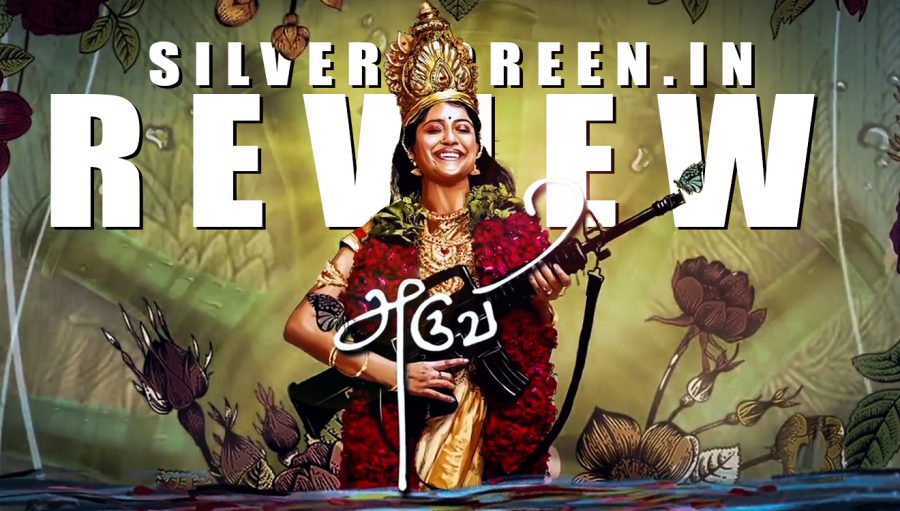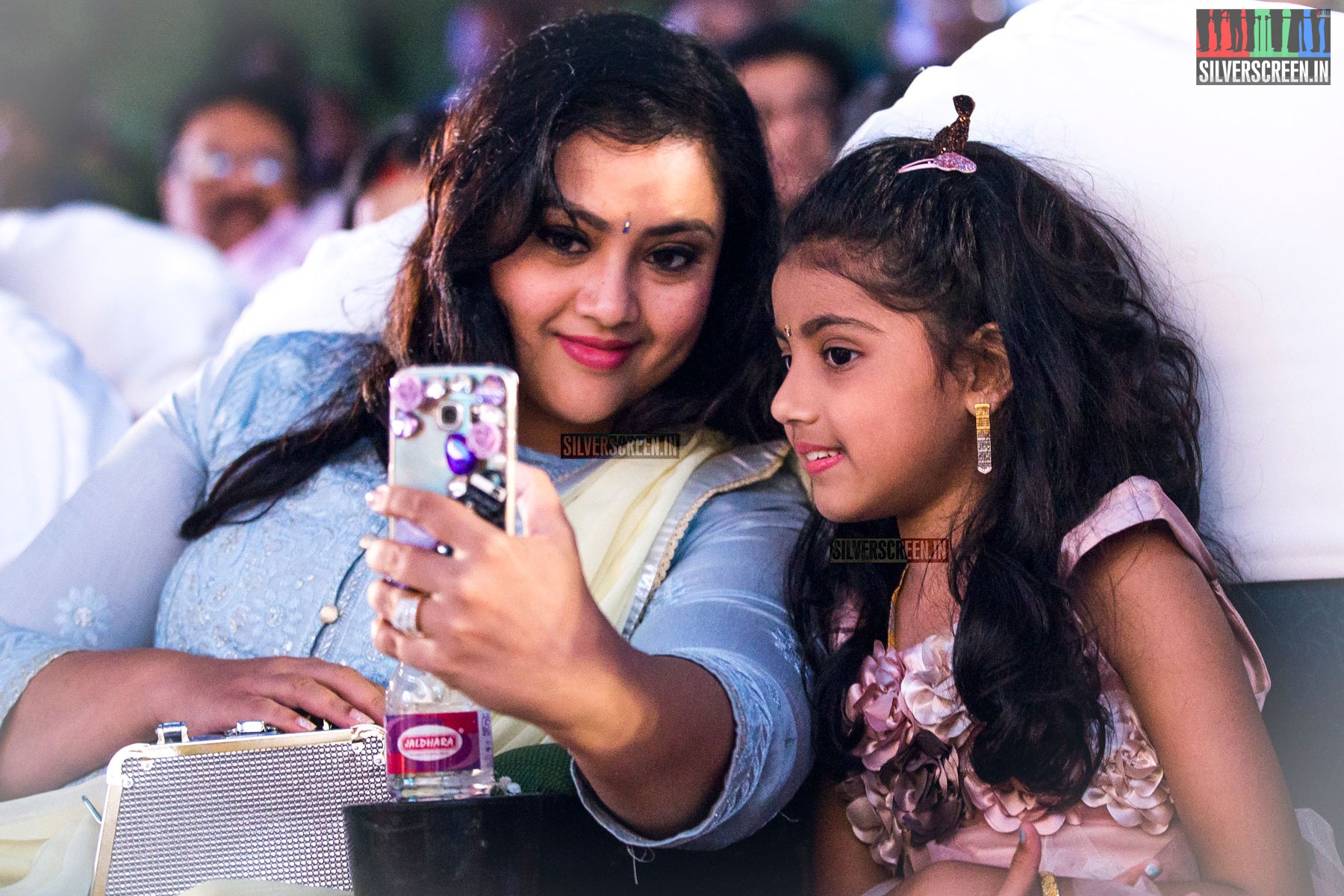*Contains spoilers
What Aruvi is, apart from being a collection of poignant, musical montages (a brilliant score by Bindhu Malini and Vedanth Bharadwaj), is quite simply the tale of a girl, a child-woman, who, as she grows out of her idyllic childhood in the countryside, discovers the darker aspects of a society so rigidly governed by and chained to its beliefs that it becomes excruciating to breathe. The vignettes that the film beams trace the early years of the protagonist’s life, babyhood through young adulthood; her likes, her loves and even mundane little things that would, if not invoke a memory, be a reminder of everything that is belatedly charming: The rustic quality of life without technology, for instance, or the carefree innocence of childhood.
Aruvi, quite like her name, is a wild thing; her emotions are fierce, rather like a roaring waterfall or a stormy mountain stream that just cannot contain its flow. She’s beautiful, intense and filled with rage that stems from a deep, abiding sorrow (Aditi Balan is wonderful all through). Early in Aruvi, a rush of images narrate her adolescence; the scenes – some potent, some delightfully ordinary – have powerful resonance. In one instance, Aruvi, at someone’s direction, sullenly tucks her bra strap inside her clothes, and in another, she playfully tells a classmate off for asking to borrow a sanitary napkin – everyday intimate occurrences that are rarely portrayed on screen, much less in the almost precise fashion that they tend to happen in reality. It gets personal, as close to a woman’s psyche as it can, and that’s a great thing for an industry that makes much of showcasing male virility and the various facets of a man’s life, but spends little to less effort trying to understand the other genders. Aruvi though, does just that. Stray utterances about sanitary napkins or bra straps may not be path-breaking, but they nod at, and acknowledge the lives of women in a society riddled with prudes to whom the sight of a bra wire is the most offensive thing ever – or in more daily occurrences, the time when that telltale wetness between legs is met with exasperation for your stash of napkins is almost down to reserve.
Aruvi evolves over the course of two hours, she grows on screen, through carefully-orchestrated sequences at first that seek to establish a powerful connection, and later, in rapid, but lingering imagery that accurately paints the tribulations of a young girl having a foot in adulthood and the other firmly in the familiar comforts of her parental world, dithering, watching.
It isn’t all that bleak, this portrait. The protagonist is representative of every millennial who happily trudged through the 90s, cycling to and from school amid slambooks, compasses and hushed talk about sex, entered adolescence just in time for cellphones and the Internet, and later discovered the appeal of raucous conversations at coffee shops. In some ways, Aruvi is quite reminiscent of Maanagaram, in which a youth from the districts arrives in the big, bad city to eke out a living, finds himself displeased with its middling ideals, only to later embrace it as it his own.
Aruvi’s Aruvi though, is raised in a family that dotes on her, a father who attends to her every whim, a brother whom she adores, and in a social milieu that, quite like the young girl herself, dares to dream beyond its means, and yet, finds itself restrained by obsolete social constructs. So much so that trying to shatter the inertia only results in familial discord, in a desperate bid to adhere to what is recognised as normal.
What’s perhaps brilliant about the movie is the fact that it establishes and breaks such conventions in one fell swoop. When Aruvi and her family encounter a dire diagnosis, she’s effectively ostracised; the caring parents turn monsters, and as she takes refuge in a shelter, a lovely transgender person becomes her sole companion. It’s beautiful this relationship; Emily and Aruvi share a space, and a life far removed from the reality of Aruvi’s society – and which, if not for the presence of the other, would have been infinitely dull. The treatment of Emily is one of the best – and the most respectable – in recent cinema; there isn’t much emphasis on her gender, none of those abominable lapses that Tamil cinema slips into while representing them. During one instance, Aruvi and Emily knock on the doors of a TV channel to feature in its reality talk show; the producers don’t quite take note until Emily saucily uses her gender to gain them entry, she knows they can’t quite resist a… sensational tale when they hear one.
Most of the film’s poignant montages are reserved for the depiction of people diagnosed HIV positive, and to do that, it establishes a rather moving personal narrative – but not without some organic humour. It almost makes one forgive the script’s penchant for drama towards the end, which arrives as a surprise for not even during the protagonist’s most vulnerable phases does it paint a weak portrait of her.
Recommended
Aruvi also questions those divisive emotions that course through a society’s fabric – when gender-consciousness and feminism become mostly a thing of convenience, or is inexplicably tied to one’s personal identity. One of the best moments in the film – apart from when the young woman finds love (oh, she does) – is when she’s sitting on the couch of the talk show. Aruvi faces her rapists who continue to deny the charges against them as only perpetrators can, looks each of them in the eye, and then tells the sets at large that she’s HIV positive. The men are suddenly struck dumb. And, a few paces to left, behind the camera, the producer of the show, tellingly, comically quivers in fright. Because, oh well.
*****
The Aruvi review is a Silverscreen original article. It was not paid for or commissioned by anyone associated with the movie. Silverscreen.in and its writers do not have any commercial relationship with movies that are reviewed on the site.



